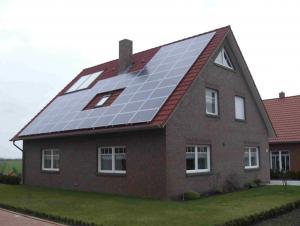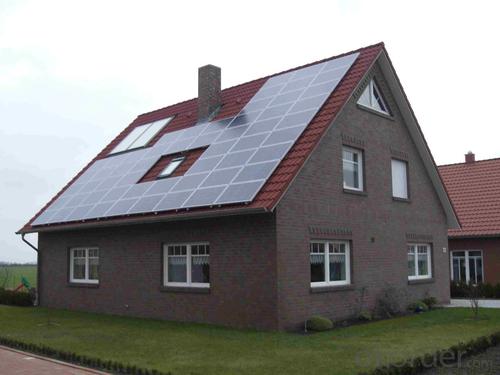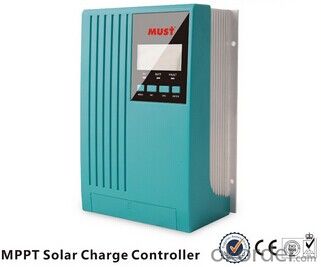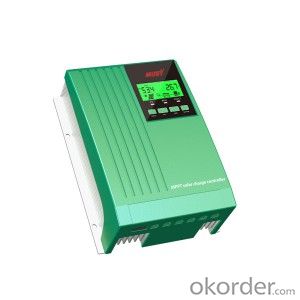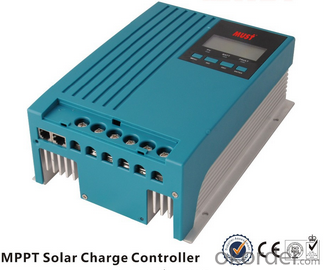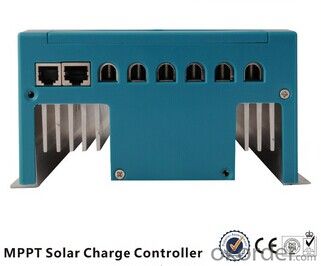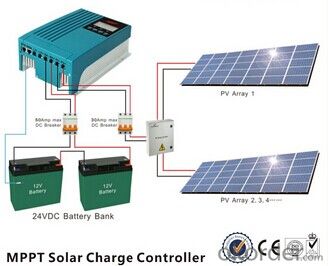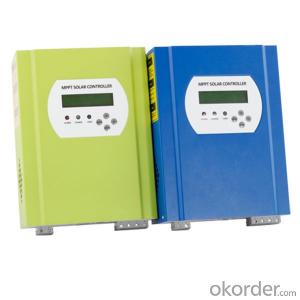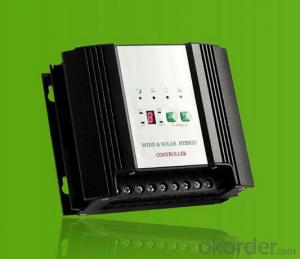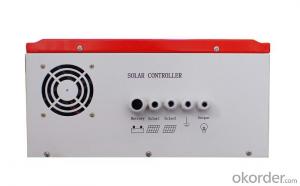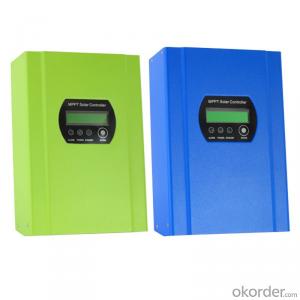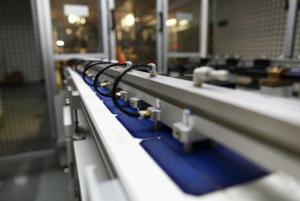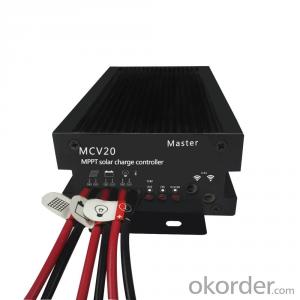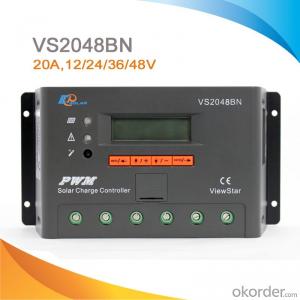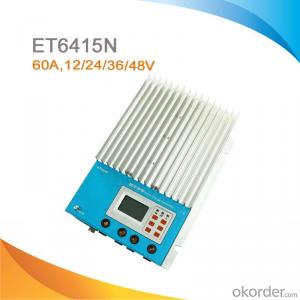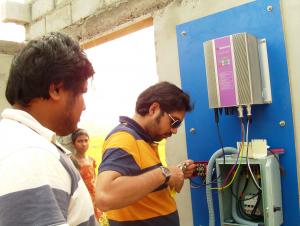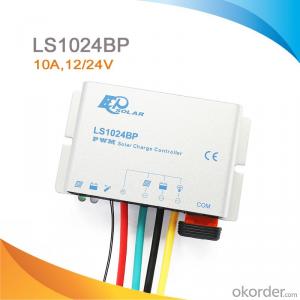Best Rv Solar Charge Controllers - MPPT Solar Charger Controller 20A/30A/40A for Solar System
- Loading Port:
- Shekou
- Payment Terms:
- TT or LC
- Min Order Qty:
- 50 pc
- Supply Capability:
- 100000 pc/month
OKorder Service Pledge
OKorder Financial Service
You Might Also Like
MPPT Solar Charger Controller 20A/30A/40A for Solar System
Power Range: 20-40A
20/30/40A MPPT solar charge controller
12V/24V auto work, MPPT efficiency>99%
peak conversion efficiency>98%
DSP processors architecture ensure high speed and performance.
1. MPPT Solar Charger Controller Characteristics:
20/30/40A MPPT solar charge controller
PV input:100V or 145V max
12V/24V auto work
MPPT efficiency>99% ,peak conversion efficiency>98%
DSP processors architecture ensure high speed and performance
Four-stages charging method
Protection: PV array short circuit, PV reverse polarity, battery reverse polarity, over charging, output short circuit
2. MPPT Solar Charger Controller specifications:
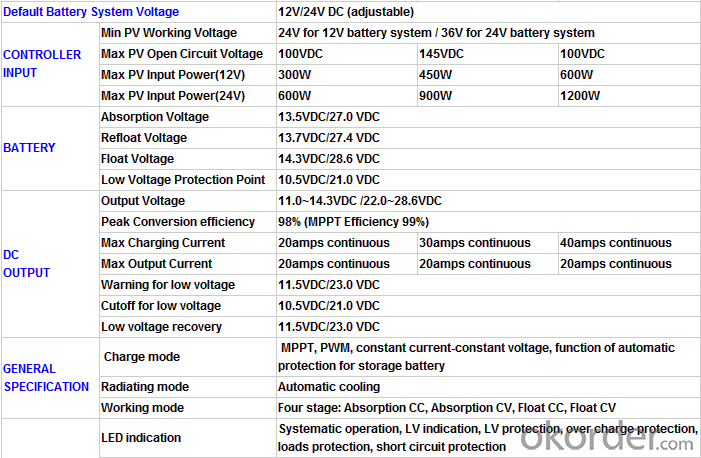
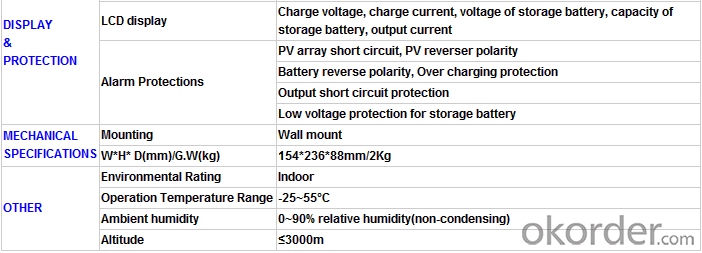
3. MPPT Solar Charger Controller Production Line:
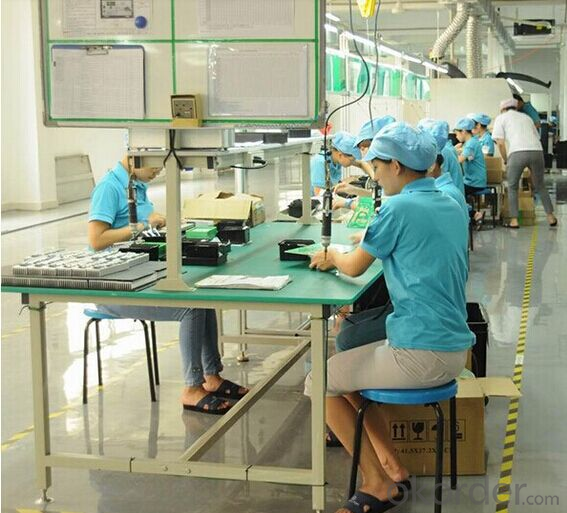
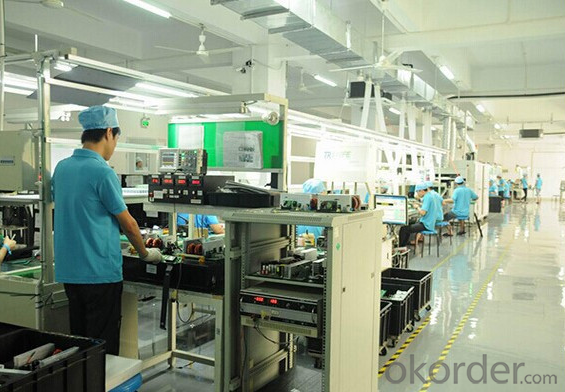
4. MPPT Solar Charge Controller Package:

5. MPPT Solar Charger Controller FAQ:
We have organized several common questions for our clients, may help you sincerely:
1. How to choose a right solar controller?
Tell us your demand, then our sales will recommend a suitable one to you.
2. What is the solar inverter warranty?
Our product warranty is valid for 12 months after delivery. We undertake to repair any malfunctioned units due to defective components of inadequate workmanship ,but specially expecting any defects resulting from normal wear and tear of improper use of the products.
3. How long can we receive the product after purchase?
a.sample orders will be delivered from our factory within 7working days .
b.General orders(under 2000pcs) will be delivered from our factory within 25 working days.
c. Bulk orders (over 2000pcs )will be delivered from our factory within 35 working days at most
4. What is the payment term?
T/T (Telegraphic transfer) / Letter of credit
- Q: Can a solar controller be used with solar-powered outdoor signage?
- Yes, a solar controller can be used with solar-powered outdoor signage. A solar controller is necessary to regulate and optimize the charging of the batteries used in solar-powered systems. It helps to prevent overcharging, over-discharging, and other potential issues. Therefore, using a solar controller is essential for maintaining the efficiency and longevity of the batteries powering the outdoor signage.
- Q: What is the maximum current that a solar controller can handle?
- The maximum current that a solar controller can handle depends on its specifications and capabilities, which can vary widely. It typically ranges from 10 to 60 amps, but there are controllers available that can handle even higher currents.
- Q: How does a solar controller handle battery under-voltage disconnect recovery?
- A solar controller is responsible for regulating the charging and discharging of batteries connected to a solar power system. When it comes to handling battery under-voltage disconnect recovery, the solar controller plays a crucial role. Under-voltage disconnect (UVD) is a protective feature in a solar controller that disconnects the battery when its voltage drops below a certain predetermined threshold. This is done to prevent the battery from being completely discharged, which can result in irreparable damage. In case the battery voltage falls below the UVD threshold, the solar controller will initiate a recovery process. The exact method employed can vary depending on the specific controller model and its capabilities. However, the general principle is to disconnect any loads connected to the battery to prevent further discharge and allow the battery to recharge. Once the battery is disconnected from the loads, the solar controller will typically monitor the battery voltage continuously. It will wait until the battery voltage reaches a predetermined level that is considered safe for reconnection. This level is usually higher than the UVD threshold to ensure that the battery has sufficiently recovered before being reconnected. Once the battery voltage has reached the safe level, the solar controller will automatically reconnect the loads, allowing the system to resume normal operation. This process ensures that the battery is protected from deep discharge while also allowing it to recover and continue providing power to the connected loads. It's important to note that the specific settings and parameters for under-voltage disconnect recovery can often be customized or adjusted based on user preferences and system requirements. This flexibility allows users to optimize the performance and protection of their solar power system according to their unique needs. In conclusion, a solar controller handles battery under-voltage disconnect recovery by disconnecting loads when the battery voltage falls below a certain threshold, continuously monitoring the battery voltage, and automatically reconnecting the loads once the battery has sufficiently recovered. This process helps protect the battery from damage while ensuring the smooth functioning of the solar power system.
- Q: Can a solar controller be used with solar-powered remote control systems?
- Yes, a solar controller can be used with solar-powered remote control systems. A solar controller helps to regulate the power output from the solar panels, ensuring optimal charging and preventing overcharging of batteries. This makes it compatible and beneficial for use in solar-powered remote control systems, as it helps to efficiently manage and utilize the solar energy for powering the remote control devices.
- Q: What is the role of a battery low voltage disconnect function in a solar controller?
- A battery low voltage disconnect function in a solar controller is responsible for automatically disconnecting the battery from the system when its voltage drops below a certain predetermined level. This function helps to protect the battery from being over-discharged, which can lead to irreversible damage and reduced lifespan. It ensures that the battery is kept at a safe voltage level, prolonging its overall performance and preventing potential hazards.
- Q: Can a solar controller be used with a solar-powered desalination system?
- Yes, a solar controller can be used with a solar-powered desalination system. A solar controller regulates and optimizes the charging and discharging of the batteries, ensuring efficient use of solar power. It helps to maintain the stability and reliability of the system, which is crucial for the operation of a solar-powered desalination system.
- Q: What is the maximum discharge voltage for a solar controller?
- The maximum discharge voltage for a solar controller typically depends on the specific model and manufacturer. However, in general, most solar controllers have a maximum discharge voltage of around 12-24 volts for 12-volt systems and 24-48 volts for 24-volt systems. It is important to consult the product specifications or user manual for accurate information regarding a particular solar controller's maximum discharge voltage.
- Q: What is the role of a battery voltage sensor in a solar controller?
- The role of a battery voltage sensor in a solar controller is to monitor the voltage level of the battery connected to the solar system. This sensor helps ensure that the battery is charged and maintained within safe operating limits by providing accurate information about its state of charge. It allows the solar controller to regulate the charging process efficiently, preventing overcharging or undercharging of the battery, which can lead to reduced battery life or system failure. Overall, the battery voltage sensor plays a crucial role in optimizing the performance and lifespan of the battery in a solar system.
- Q: What is the role of a solar controller in preventing damage to the solar panels from hail or storm events?
- The role of a solar controller in preventing damage to solar panels from hail or storm events is primarily to act as a protective mechanism. Hailstorms and severe storms can pose significant risks to solar panels, and a solar controller plays a crucial role in mitigating these risks. Firstly, a solar controller is responsible for monitoring the weather conditions. It can detect the approach of a hailstorm or severe storm by analyzing data from various sensors and weather forecasting systems. This early detection allows the solar controller to initiate precautionary measures before the storm hits. Once a storm is detected, the solar controller can activate protective mechanisms to safeguard the solar panels. One such mechanism is the ability to automatically tilt the panels to an angle that minimizes the surface area exposed to hail or storm winds. This adjustment reduces the chances of hailstones or debris directly hitting the panels, thereby preventing potential damage. Additionally, solar controllers often have built-in sensors that can detect the impact of hailstones on the panels. If the sensors detect a certain level of impact, the controller can automatically shut down the panels to prevent further damage. This feature is crucial as it prevents the panels from generating electricity during a storm, reducing the risk of electrical surges or short circuits. Furthermore, solar controllers can also activate protective coverings or shields to physically shield the panels from hail or storm-induced damage. These coverings are usually made of durable materials that can withstand the impact of hailstones or debris, providing an additional layer of protection to the panels. Overall, the role of a solar controller in preventing damage to solar panels from hail or storm events is to monitor weather conditions, initiate precautionary measures, adjust panel angles, shut down panels if necessary, and provide physical protection. By performing these functions, solar controllers play a crucial role in ensuring the longevity and efficiency of solar panel systems during adverse weather conditions.
- Q: What is the maximum power capacity of a solar controller?
- The maximum power capacity of a solar controller typically varies depending on the specific model and brand. However, most standard solar controllers have a power capacity ranging from 10 to 60 amps. It is important to consider the power requirements of your solar system and choose a solar controller that can handle the maximum power output of your solar panels.
Send your message to us
Best Rv Solar Charge Controllers - MPPT Solar Charger Controller 20A/30A/40A for Solar System
- Loading Port:
- Shekou
- Payment Terms:
- TT or LC
- Min Order Qty:
- 50 pc
- Supply Capability:
- 100000 pc/month
OKorder Service Pledge
OKorder Financial Service
Similar products
Hot products
Hot Searches
Related keywords
